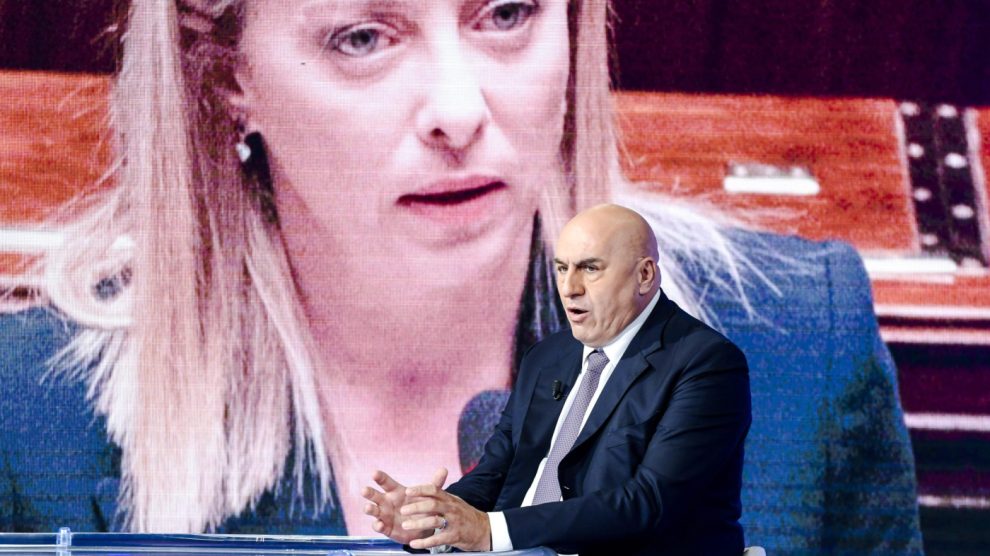Some background. Last week PM Giorgia Meloni spoke with Ukrainian President Volodymyr Zelensky. She “renewed the Italian government’s full support for Kyiv,” including via military aid, and probably touched upon Italy’s sixth weapons package, which was rumoured to be in the works.
What (military) aid? As disclosed by Repubblica last week, the last decrees passed by former PM Mario Draghi committed to delivering the most technologically advanced weapons to Ukraine. It included the self-propelled MLRS (Multiple Launch Rocket System) and the PzH2000 (an advanced type of artillery system), as well as Lince armoured vehicles, used to free Ukrainian cities.
Sending mixed signals. “There is no new military aid package for Ukraine under consideration at present,” was the message issued yesterday by the Italian Council of Ministers and the Ministry of Defence. As published by il Messaggero – quoting government sources – this should not be mistaken for a change of course of Ms Meloni’s government.
According to the newspaper, there are three main reasons for the standby:
- Ukraine’s request for air defence systems – namely, the sophisticated surface-to-air missiles SAMP-T, which due to Italy’s limited stocks, would leave Italy’s defence system unguarded.
- Rome is yet to deliver all the weapons pledged to Kyiv in the fourth and fifth military aid packages. “We must first finish those deliveries before starting on a new one,” noted the Ministry of Defence.
- The new military aid package must first be approved by Defence Minister Guido Crosetto and Parliament’s Intel Committee, which is not up and running yet.
Not the usual suspects. The League’s Matteo Salvini – currently the Deputy PM and Minister of Infrastructure – continues to call for peace conferences and to block Italy’s aid to Ukraine. Meanwhile, Silvio Berlusconi’s Kremlin-leaning leaks already generated embarrassment in the newly-formed government. Five Star Movement leader, Giuseppe Conte, has also opposed a new military aid package for Ukraine. However, neither of them appears to have anything to do with the current decision.
Debunking truth from hearsay. Il Messaggero quotes government sources stating military aid for Ukraine is on standby “because we must coordinate with NATO on Ukraine’s specific military requests first. Only at that point will we be able to decide which weapons we can provide Ukraine.”
- NATO Secretary General Jens Stoltenberg’s expected visit to Rome next week would allow PM Meloni and Defence Minister Crosetto to meet with him and determine which armaments are vital for Ukraine’s air defence.
- However, it is important to note that NATO’s role is not one of technical coordination or decision-making on military aid to Ukraine. It is responsible for political consultations and promotes different types of support for Ukraine.
- Discussions about the technical coordination are held by the Ukraine Defence Contact group, gathering approximately 50 countries, held at the invitation of US Secretary of Defence Lloyd Austin.
Russia’s botched blame game. The contents of Italy’s military aid package were partially revealed on Monday. That story caused Russia’s Ambassador to Italy, Sergey Razov, to peddle a brand-new piece of disinformation. “I do not exclude that Italy also deployed men [to Ukraine]”, he said from the stage of the Verona forum in Baku.
- That statement was later corrected by the Russian Embassy in what essentially amounted to a course correction. “No, men were not deployed, but the cannons used to bomb Donetsk could be of Italian production, but we have no confirmation about this,” noted the Embassy in a note.
Bottom line: the coming weeks will be a crucial test of PM Meloni’s government and her ability to bring forward her foreign affairs and defence policies.





